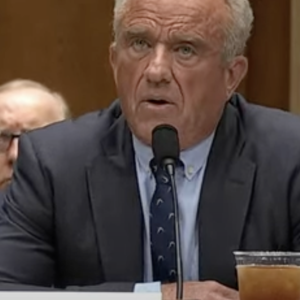Federal and commercial stakeholders have pledged to streamline the often burdensome prior authorization (PA) process that can lead to delays in treatment and poorer clinical outcomes.
The new pledge, by America’s Health Insurance Plans, a health insurance trade organization, was at the center of a recent roundtable discussion that AHIP held with Health and Human Services Secretary Robert F. Kennedy Jr., and Mehmet Oz, MD, the administrator of the Centers for Medicare & Medicaid Services (CMS).
The AHIP pledge, released hours before the roundtable took place, is a “series of commitments,” according to the organization, “to streamline and improve the [PAs] for Medicare Advantage, Medicaid Managed Care, Health Insurance Marketplace and commercial plans.”
HHS and AHIP outlined the pledge’s key benefits. For patients, it will result in faster, more direct access to appropriate medical services. For providers, the measures will streamline PA workflows, allowing for a more efficient and transparent process, while ensuring evidence-based care for their patients.
Digging a bit deeper, participating health plans have committed to:
- standardize electronic PA submissions using Fast Healthcare Interoperability Resources–based application programming interfaces by Jan. 1, 2027;
- reduce the volume of medical services subject to PA by Jan. 1, 2026;
- honor existing authorizations during insurance transitions to ensure continuity of care, as part of a 90-day transition period;
- enhance transparency and communication around authorization decisions and appeals by Jan. 1, 2026;
- expand real-time responses to minimize delays in care with real-time approvals for most requests (80% according to HHS) by 2027; and
- ensure medical professionals review all clinical denials, which AHIP said is already in effect.
The commitments are voluntary, Dr. Oz noted in an HHS press release issued the day of the roundtable. “We applaud these voluntary actions by the private sector, which is how these types of issues should be solved,” he said. “CMS will be evaluating progress and driving accountability toward our shared goals.”
Catherine Cooke, PharmD, MS, BCPS, PAHM, a research professor in the Department of Practice, Sciences and Health Outcomes Research at the University of Maryland School of Pharmacy, in Baltimore, said the PA pledge signals to her that health insurers think it’s better for them to address the issue than have it be “addressed upon them.” She noted that some of the AHIP tactics are good, with the participating payors “trying to decrease the noise and smooth the process, but not revamp [it] or [remove key provisions].”
Dr. Cooke added that PAs often pose a major barrier to medication adherence—an impediment that hopefully will be lessened by the pledge’s smoothing process. “The value of the smoothing will be when patients go to pick up their prescription, they find that it’s covered and the process is seamless, similar to medications not subject to prior authorization.”
AHIP also released a list of participating health plans and additional information.
Dr. Cooke reported no relevant financial disclosures.
This article is from the August 2025 print issue.





